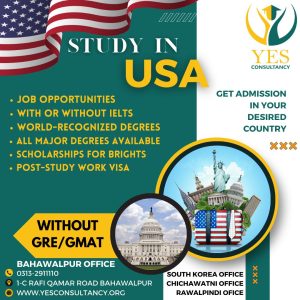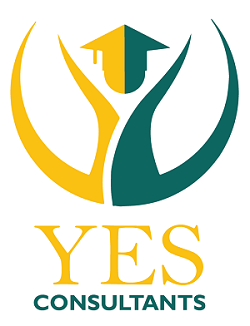Why study in the U.S.A?

Over a million foreign students go to the US every year, which is almost twice as many as go to the UK, which is in second place. In fact, there are almost as many foreign students in the US as there are in all of Europe. However, you shouldn’t just follow the crowd. Instead, you should think about whether an American or European education is best for you. But why do students from other countries choose to study in the United States? There are a lot of them. The world’s best colleges are a big draw, but so are the chances to study in world cities, make connections with global businesses and tech innovators, or just experience the culture of a country that has changed the world.
Fees for study in the USA
You probably already knew that you would have to pay school fees in the United States. Fees for a bachelor’s degree at an American university range from around $10,000 to over $60,000 a year, but most students pay between $25,000 and $40,000. Prices vary based on the type of university you attend. The average cost of a Master’s degree is about $30,000 per year, but some classes can be much cheaper.
Private schools run a lot of universities, including some of the most famous ones. These are usually the most expensive, costing around $40,000 a year, because they get their money from fees or donations. The most expensive schools, like Harvard or Stanford, can cost around $60,000 a year. This makes a four-year degree, plus living costs, very expensive.
Since the public pays for state institutions, they are much cheaper. Most of these are between $20,000 and $25,000 a year for people who don’t live in the state. Students from the same state, on the other hand, pay even less—around $10,000 per year, on average.
How much does it cost to live in the US?
After course fees, rent is likely to be the biggest cost for most people, and it can change a lot. A single bedroom in a big city like New York or Boston could cost you as much as $3,000 a month. If you went to college in the Midwest, you could cut that down to just $600.
Work and study in the U.S.A?
Can people from other countries work in the United States?
The F-1 Visa does let foreign students work in the U.S., but there are strict rules about how much they can work.
- First, foreign students in the United States can only work 20 hours a week during school terms. During breaks, you can work full-time, but only if you are signed up to go back to school the next term.
- Second, and this is probably the most limiting, you can only get jobs at your college location. Even though this still leaves a wide range of jobs open, such as working in stores, departments, or even as a teacher if you are getting a higher degree, there will be a lot of competition for a small number of jobs.
- The only time it’s okay to work off campus is if it’s related to your degree and gives you real experience. But you’ll need permission from US Citizenship and Immigration Services, and you can’t do this until you’ve been in school for at least a year. There are even rules about helping. For example, you can’t do internships in places that aren’t educational.
Keep studying in the United States.
Another choice is to keep learning in the United States. You can have as many F-1 cards as you want. All you have to do is fill out a new application. But you might have to apply through your home country to show that you still have a home there.
Apply for a master’s degree. If you already have a bachelor’s degree, you might want to add the specialized information that a master’s course gives you. On the Master’s Portal, you can find more than 35,000 Master’s degrees.
Apply for a PhD, which is the best academic degree you can earn. A PhD is a research-based degree that lets you study your chosen field in depth and results in research that adds to what people know about the world. We have a list of more than 3,000 PhDs in the US.
Language Requirements:
- IELTS Academic stands for the International English Language Testing System. Most colleges will want you to get at least a 7.5 on this test.
- TOEFL iBT is the Internet-based version of the Test of English as a Foreign Language. Most of the time, you need a score of 100 or more.
- Pearson’s Test of English Academic (PTE Academic) Most of the time, a minimum score of 68 is asked for.
- iTEP stands for the International Test of English Proficiency. A score of at least 4.5.
- Cambridge English: C1 Advanced or C2 Proficiency (Advanced or Proficiency). A group of at least 190
Documents required to apply in a university in the USA?
- ID card
- Resume or Curriculum Vitae
- Mark sheets and graduation certificates
- Recommendation letters
- English Proficiency Test Scores
- Letters about Work Experience
- Purpose Statement (SOP)
- Proof of funds.
- Description of a research, portfolio, or project proposal
- Certificates for activities outside of school
- A copy of the confirmation of the application
